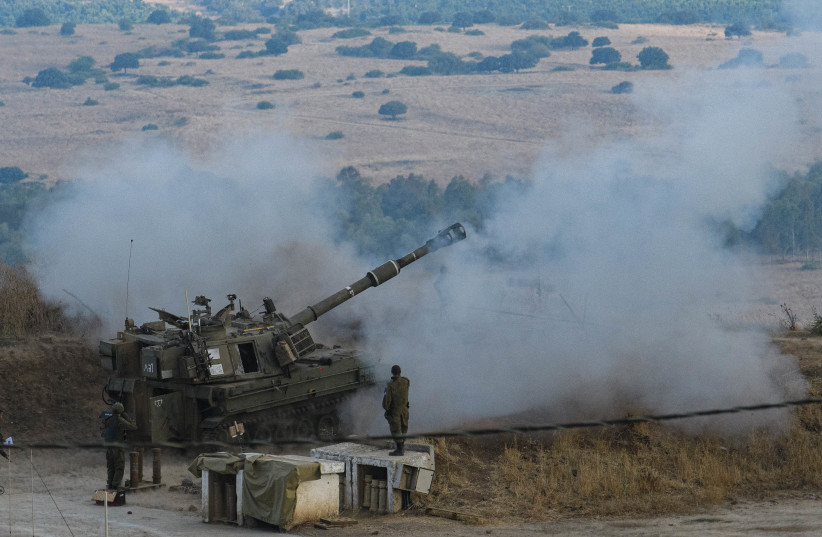As hundreds of Lebanese individuals tried on Sunday to cross through IDF defense lines to return to several villages in southern Lebanon, the military said it used warning shots to keep them away, though the Lebanese Health Ministry reported that this led to at least 22 deaths and 120 wounded.
Throughout the day, the IDF gave ongoing and evolving updates about the numerous and widening altercations, with mixed reports about which of the Lebanese trying to cross through were Hezbollah fighters and which were regular civilians.
There were also reports that one of those killed by the military was a Lebanese soldier, with the IDF initially saying it knew nothing of the report and later saying it understood the soldier had been wounded but was not necessarily dead and was probing the circumstances.
Overall, it did appear that Hezbollah was trying to encourage mass groups of Lebanese people to move into southern Lebanon to put physical and diplomatic pressure on the military to complete its so far only partial withdrawal from the area.
There were no reports of those Lebanese who approached the IDF forces opening fire, and Hezbollah did not fire any rockets into Israel on Sunday nor at any time since the early days of the ceasefire signed on November 27.
Military sources early in the morning on Sunday originally indicated to The Jerusalem Post and Lebanese media that five Lebanese were wounded by the fire.
Later, updates by the Lebanese Health Ministry placed the numbers at 11 killed and later at 15, with the numbers potentially likely to grow even more.
Kafr Kila is one of dozens of locations where the IDF has said it will not fully withdraw from at this time, saying the Lebanese Army is not fully deploying to all of southern Lebanon and is also frequently not destroying Hezbollah weapons when it takes up certain positions.
Further, the military has noted specific instances in which it has asked the Lebanese Army to eliminate specific Hezbollah weapons, where it has not done so or only started the process of doing so on such a delayed basis that the IDF had to destroy the Hezbollah weapons lest the terror group succeed in moving them and hiding them at a new location.
The Lebanese government, Hezbollah, and France have all said Israel is violating the November 27 ceasefire deal with Hezbollah even though the terror group has not launched rockets or mortars into Israel since the end of November.
The IDF already started withdrawing from significant portions of southern Lebanon in late December.
However, Israel has said that following the 2006 Second Lebanon War, it made the mistake of allowing Hezbollah to bully the United Nations Interim Force in Lebanon and the Lebanese Army and return to southern Lebanon, where it built up a massive rocket arsenal and potential invasion capability, such that the military will act more aggressively this time around to prevent a recurrence of such events.
Staying beyond the deadline?
Israel has not said definitively how long it will overstay the deadline in the parts of southern Lebanon from where it has not yet withdrawn, but various officials leaked a potential 30-day extension to the Post and other media.
Alternatively, if the Lebanese Army deploys faster to the rest of southern Lebanon, the IDF might feel compelled to complete its withdrawal faster as well.
On Friday, Trump administration officials said there should be a short additional extension for Israel’s presence in southern Lebanon to address Israeli security concerns but did not endorse a full 30-day extension and appeared concerned about the ceasefire falling apart.
Before leaving office, former US president Joe Biden’s administration acknowledged that the Lebanese Army’s compliance with ensuring Hezbollah was not in southern Lebanon had only been partial, but it still pushed for Israel to withdraw by the 60-day deadline and was clearly emphasizing that a collapse of the ceasefire would be the worst-case scenario.
Although Hezbollah threatened to fire on Israel if Israel extended its presence beyond 60 days, as of late Sunday, the group seemed to be hoping global diplomatic pressure would get Israel to leave without too long of an extension and without having to return to war.

